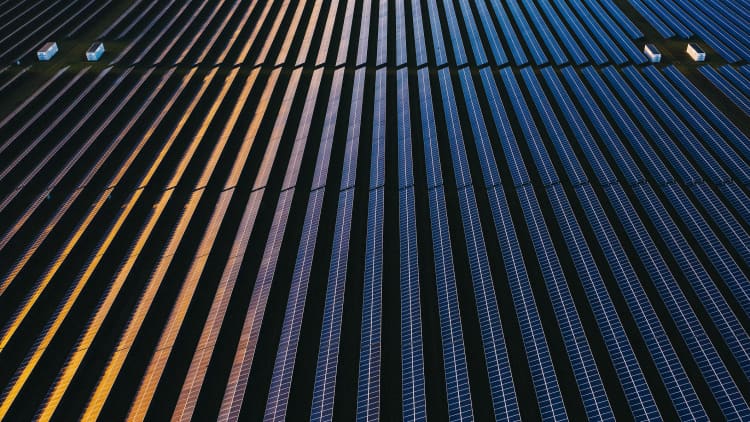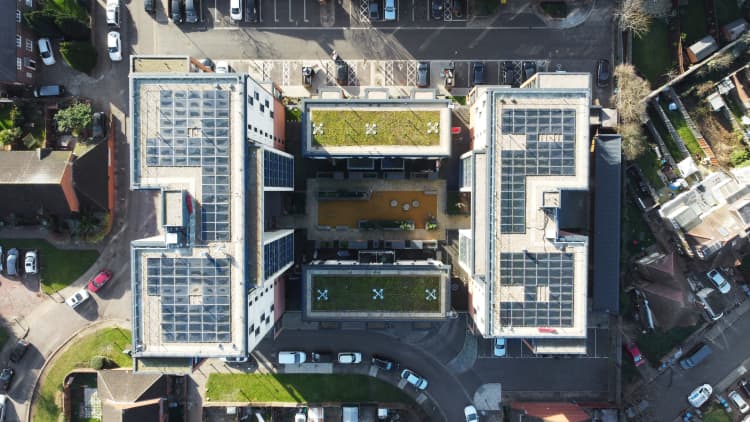
The pace of change in today’s world is often fast and dizzying. Technologies that seem integral to our lives can, as in an instant, become redundant and irrelevant.
Energy is an area where innovation and new ideas matter a lot as countries and companies try to find ways to a society based on renewable sources like wind and solar rather than fossil fuels like coal, oil and natural gas.
During a discussion at the World Economic Forum in Davos, Switzerland last week, one analyst expressed concern that the market does not seem to have learned from other technological revolutions.
Thomas Höhne-Sparborth, head of sustainability research at Lombard Odier, highlighted the huge shifts taking place in the field of low and zero carbon technologies and, by extension, in wider society.
“We’ve seen past industrial revolutions, including past energy transitions,” Hohn-Sparbort said. “What we’re actually seeing now is a complete transformation of our entire economy.”
“The demand side of our economy, the way we power cars, the way we heat buildings, the way we use energy in industry, all of this needs to be transformed.”
We are, Hohn-Sparbort said, “looking at trillions of dollars in investment needs.”
As for the energy transition, the amounts discussed are really significant. Last year, the International Energy Agency’s Global Energy Outlook 2022 report said clean energy investment could top $2 trillion annually by 2030, a more than 50% increase from today.

As the discussion in Davos, moderated by CNBC’s Jumanna Berchetche, got under way, Hohn-Sparbort was asked if clean energy is now available at the scale required.
The answer to that question, he replied, was that “it fluctuates very quickly, and today I would say, yes, it has become the cheapest source of energy.”
“What I think the overall market is underestimating is just the pace at which this transition is unfolding,” he added, explaining that there are lessons to be learned from history.
“We’ve done some work looking at the technological revolutions of the past, whether it’s the adoption of steamships, the adoption of cell phones, any major type of new infrastructure technology.”
All such transitions, Hone-Sparbort argues, “tended to follow a very similar pattern. They unfold very slowly … and then the transition is complete within 10 to 20 years.”
“However, if you look at what the market expects today, how long it will take us to electrify our buildings, electrify our fleets, there are still much longer timelines.”
For Hohne-Sparborth, it didn’t seem to go through with it, “when a new, high-end technology comes along that becomes cost-competitive, that rollout can happen very quickly.”
Dramatic change
Energy company CEO Andres Glusky also appeared on the CNBC panel AES:.
“What we are facing … is a dramatic change,” he said, adding that renewables now represent “in many cases the cheapest form of energy.”
“The problem is in capacity. how do you have the lights on 24/7 and here you have to use lithium-ion batteries every day.”
Expanding his view, he continued to emphasize the importance of using different technologies.
“To really get to full decarbonization, we’re going to need green hydrogen, we’re probably going to need small modular reactors and so on.”
“And I also very much agree that we need renewable energy to be more than just competitive, just better, so that we can drive down costs, [and] equal in quality.”
“And that, frankly, is asking a lot of the corporate sector, and a lot of consumers.”
.
[ad_2]
